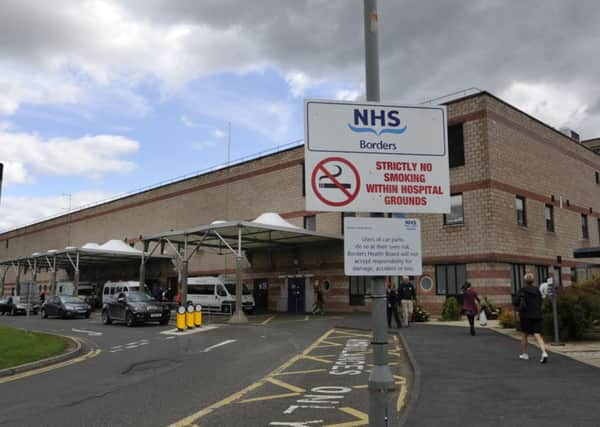Diagnosis failure leads to NHS apology


The woman was told that she had fractured a bone in her arm when she was treated at Borders General Hospital in Melrose, after a fall at her home.
She was discharged, but she returned to hospital “in significant pain” the following day.
Advertisement
Hide AdAdvertisement
Hide AdThe Scottish Public Services Ombudsman said NHS Borders should apologise.
The ombudsman heard that the woman, known as Mrs A, did not receive a “reasonable standard of treatment” when she had initially attended the accident and emergency department.
The SPSO also found her pain level was not assessed before she was sent home.
There was no evidence to show that an assessment was carried out to find out how she might manage at home.
Advertisement
Hide AdAdvertisement
Hide AdWhen she returned to the hospital further tests revealed she had fractured her kneecap and had bone cancer.
The Scottish Public Service Ombudsman’s report read, in part: “We took independent medical advice from a consultant in emergency medicine who considered that Mrs A did not receive a reasonable standard of treatment when she initially attended A&E.
“In considering Ms C’s complaint about the delay in Mrs A being reviewed by an orthopaedic specialist and physiotherapy, our orthopaedic adviser told us the eight week delay in Mrs A being reviewed was unlikely to have had a detrimental effect on the healing of her arm fracture. However, given she was to be reviewed within three weeks we found the delay in this case to be unreasonable.
“We upheld all of Ms C’s complaints, although we noted that the board had apologised to Mrs A that the pain relief they gave her was inadequate and acknowledged that a mistake had been made in her not being referred to the orthopaedic clinic and physiotherapy for further review. They also arranged for the hospital’s discharge procedure to be reviewed with a view to making improvements in order to prevent the matter recurring.”
Advertisement
Hide AdAdvertisement
Hide AdA spokeswoman for NHS Borders said it had carried out the recommendations made in the SPSO report and the patient has been given a full apology.
“We have assured the ombudsman’s office that we fully recognise, and regret, the aspects of the patient’s treatment which did not meet expected standards and will take what has been learned from this experience to improve our service in the future.”